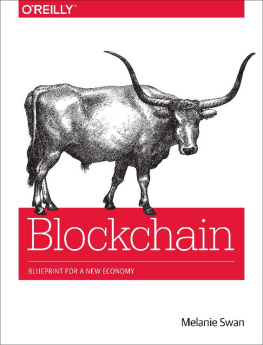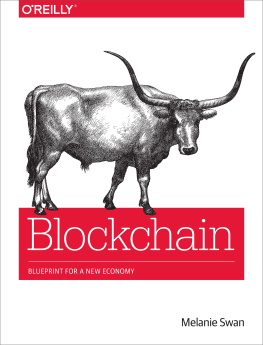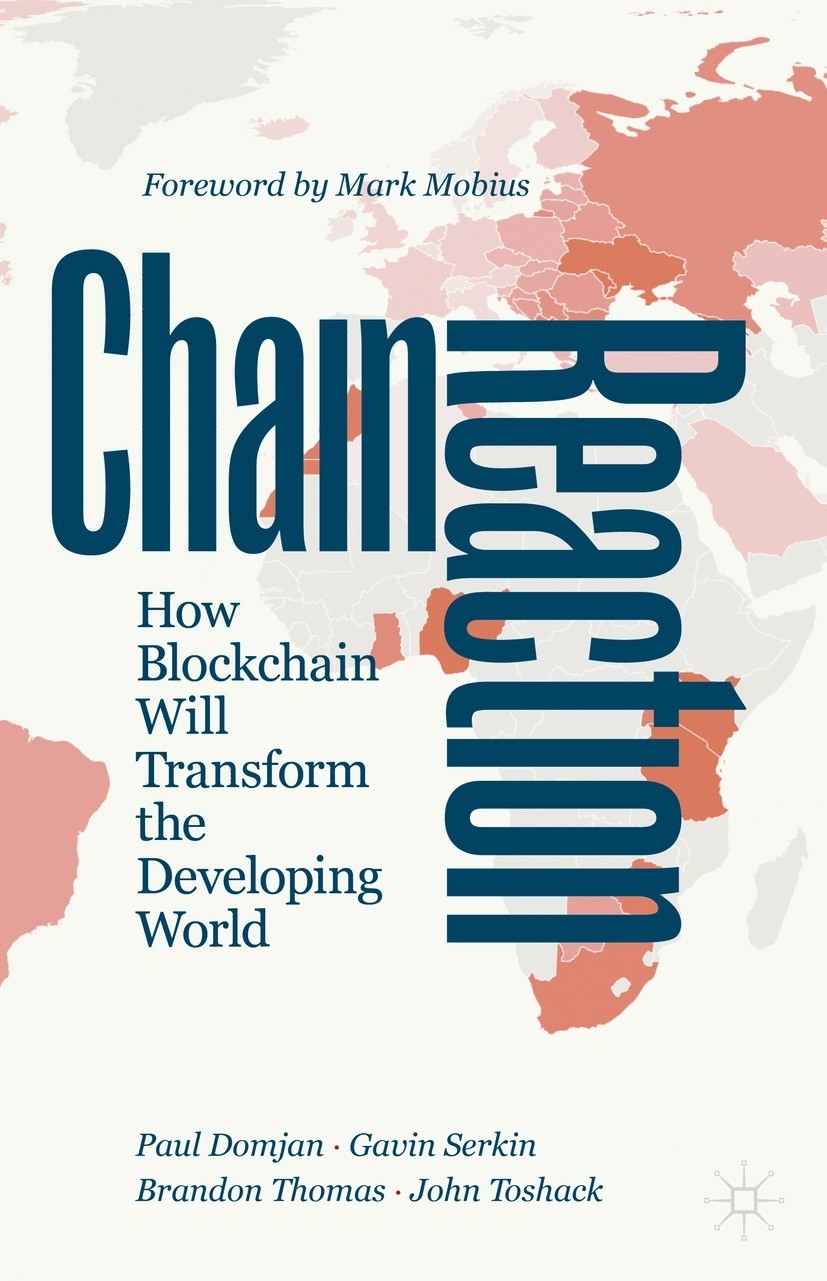Paul Domjan
NormannPartners, London, UK
Gavin Serkin
New Markets Media & Intelligence, London, UK
Brandon Thomas
Grayline Group, Austin, TX, USA
John Toshack
Delphos International, London, UK
ISBN 978-3-030-51783-0 e-ISBN 978-3-030-51784-7
https://doi.org/10.1007/978-3-030-51784-7
The Editor(s) (if applicable) and The Author(s), under exclusive license to Springer Nature Switzerland AG 2021
This work is subject to copyright. All rights are solely and exclusively licensed by the Publisher, whether the whole or part of the material is concerned, specifically the rights of translation, reprinting, reuse of illustrations, recitation, broadcasting, reproduction on microfilms or in any other physical way, and transmission or information storage and retrieval, electronic adaptation, computer software, or by similar or dissimilar methodology now known or hereafter developed.
The use of general descriptive names, registered names, trademarks, service marks, etc. in this publication does not imply, even in the absence of a specific statement, that such names are exempt from the relevant protective laws and regulations and therefore free for general use.
The publisher, the authors and the editors are safe to assume that the advice and information in this book are believed to be true and accurate at the date of publication. Neither the publisher nor the authors or the editors give a warranty, expressed or implied, with respect to the material contained herein or for any errors or omissions that may have been made. The publisher remains neutral with regard to jurisdictional claims in published maps and institutional affiliations.
This Palgrave Macmillan imprint is published by the registered company Springer Nature Switzerland AG
The registered company address is: Gewerbestrasse 11, 6330 Cham, Switzerland
For all those pursuing a post-kleptocratic world in which transparency keeps us honest and includes the excluded.
Foreword
There is a growing realization all over the world, but particularly in developing countries, that there is a set of problems linked to trust, verification and value transfer that could actually be solved with blockchain technology, unlocking untold potential for advancement.
This is the starting point for Chain Reaction. In this sense it is very much an emerging markets book, which is why I found it so interesting. Yet, in taking the reader on a journeyoften in some of the worlds most challenging regionsto where one of the most transformative technologies is being applied, it is also incredibly helpful for anyone who truly wants to understand why people are so excited by what is often described as little more than an accounting tool or fancy spreadsheet.
Step by step, the authors explain with clarity the essential tenets of how Bitcoin works, how other blockchains overlap and differ from Bitcoin, and how entrepreneurs in developing countries are adopting this technology in an attempt to solve a multitude of problems from money transfer to counterfeit prescription drugs, holding warlords to account and testing for coronavirus. Case studies from Uganda to the Philippines and Mongolia, along with useful developed world examples, serve to emphasize the massive impact the concepts so far proven by Bitcoin could have on the developing world.
These practical examples also tackle the significant challenges for blockchain, and for Bitcoin in particular, such as gaining acceptability in entrenched industries, issues around data integrity and the resistance of governments who fear loss of power and control with blockchain adoption. Blockchain is not the panacea that cures all ills.
In consideration of such obstacles, the authors review the development of mobile wallets and payment systems, as exemplified by M-Pesa in Kenya and WeChat in China. Most interestingly, they show how the frontier markets of Africa, despite lower per capita wealthor perhaps because of thisare among the most innovative in the world and are successfully leapfrogging into latest technologies.
The chapter on trust is especially insightful, looking at the problems created in property records as a significant example. The authors explain how risk can be mitigated through a blockchains ability to simplify verification and leverage transparency to develop trust, if managed effectively. Another chapter shows an aid organization using blockchain to distribute vouchers that can be used as electronic cash, with the advantage of being able to accurately and efficiently trace each user and their transactions.
The authors take care to explain blockchain in a way that is both accessible to the novice but with sufficient depth to comprehend the considerable issues that the technology is grappling with. The book also acknowledges that even the language used to describe these emerging technologies is in flux, as the authors explain what is (and is not) meant by decentralized, trustless and other adjectives often thrown around to describe blockchain-based systems. Hint: these words dont mean what you think they mean.
One innovative idea coherently explained is the possibility of private permissioned blockchains, with a proof of stake validation and consensus mechanism, where validators deposit money and use it as collateral to vouch for a block in the blockchain, providing a useful half-way house between fully decentralized public chains and centralized legacy systems. In probing how blockchains operate and who controls them, we get to know the various actors: the users, node operators, miners and developersthe people who maintain and create the protocols on which these systems run.
Chain Reaction takes us beyond the binary excitable view of cryptocurrencies where bull market ideologues face off against gold-bugs and sceptics who decry crypto as worthless, in favor of a more considered exploration of cryptocurrencies vis--vis their competition, ranking their qualities in comparison to physical and electronic cash. Crypto comes out poorly, for now, as an accepted means of exchange, but beats physical cash for storage and, crucially for emerging markets, immunity to the hyper-inflation, capital controls and banking sector risks that plague many fiat currencies. This leads us to the books central thesis: if the potential of blockchain technology is to be fulfilled, developing markets are likely to be the biggest beneficiaries.
Overall, this book provides not only a wonderful insight into how blockchain can impact the developing world but is also a primer for understanding distributed leger technology, blockchain and cryptocurrencies.
Dubai, United Arab Emirates Mark Mobius
Mark Mobius is the former Executive Chairman of Templeton Emerging Markets Group, and Founding Partner of Mobius Capital Partners.
Mark Mobius
Dubai, United Arab Emirates

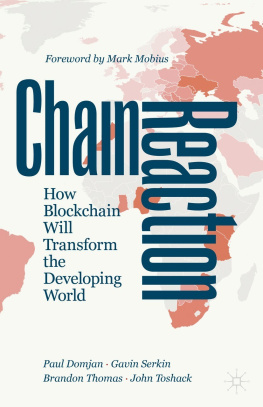
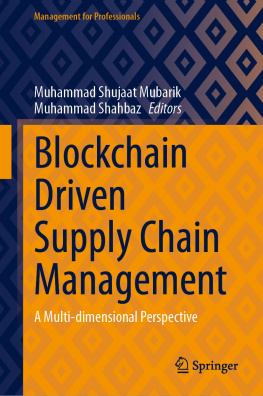
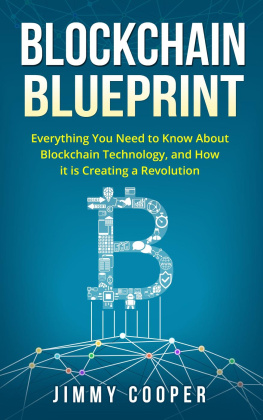
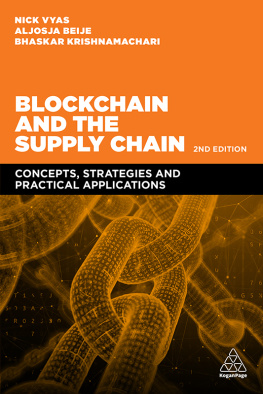

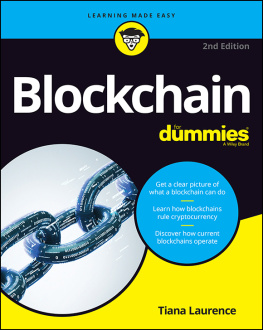
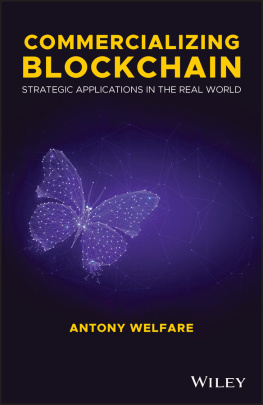
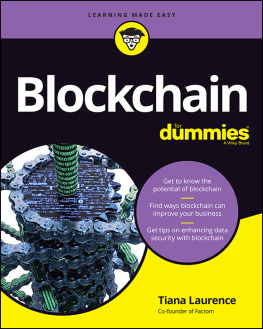
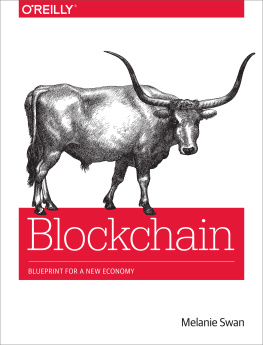
![Tiana Laurence [Tiana Laurence] - Blockchain For Dummies](/uploads/posts/book/119706/thumbs/tiana-laurence-tiana-laurence-blockchain-for.jpg)
